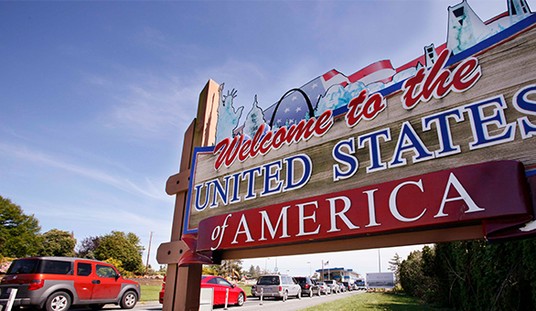In keeping with historic Christian doctrine on sexuality, one of the largest evangelical campus outreach organizations released a statement of faith on Thursday which restates the biblical and traditional Christian view of sexuality, part of which involves rejecting the notion of gay “marriage.” Aghast liberals appeared shocked, and Time‘s Elizabeth Dias reported that the new position means the group will “Dismiss Employees Who Support Gay Marriage.”
“This is not accurate,” InterVarsity Christian Fellowship USA responded in a press release on Friday. “No InterVarsity employee will be fired for their views on gay marriage.” This is an important issue, as the organization has 1,300 staff members for more than 1,000 chapters on 667 college campuses around the country, and involved more than 41,000 students and faculty during the last academic year.
So why the confusion? Shortly after InterVarsity’s declaration on human sexuality, Dias received email comments from Greg Jao, an InterVarsity vice president and director of campus engagement. Jao told her that if an InterVarsity employee comes forward in disagreement with the position, that will be treated like a two-week notice. Importantly, the organization has offered to cover outplacement service costs for one month after an employee leaves.
Dias also misunderstood Jao when he explained, “We internally categorize these as involuntary terminations due to misalignment with InterVarsity ministry principles, which is a category we use for people who leave for theological and philosophy of ministry disagreements.” While the organization may call these “involuntary terminations,” they are not the same thing as pink slips.
“If you are in disagreement, then we are going to ask you, with integrity, to identify that and leave,” he told Dias. While it may shock Dias that an evangelical Christian organization does not believe in gay marriage, it should not shock those who know InterVarsity well — especially those who work there.
In the press release, the organization insisted that “InterVarsity’s position on human sexuality has not changed in its 75-year history.” In that document, Jao declared, “We have always expected employees to reflect the ministry’s theological beliefs, as would be true for any church, synagogue, mosque, or religious organization.”
When it comes to “involuntary termination,” this is how he described it in the press release: “We recognize employees who disagree, or whose beliefs have changed over time, will leave employment because we have reiterated our beliefs.”
Nevertheless, InterVarsity insisted that the organization “welcomes all students and faculty—including LGBTQI individuals—in our fellowships. We also continue to employ individuals who have an LGBTQI identity and who affirm our theological beliefs around human sexuality.”
“Throughout this process, we are very aware that LGBTQI people have experienced great pain, including much caused by Christians,” Jao explained. “We also know that we ourselves each need Jesus’ grace daily. So we attempt to walk humbly in this conversation.”
Despite this conciliatory approach toward LGBT people and the organization’s history of holding such positions, a few staffers vehemently disagreed with the new statement on sexuality. Dias found a few staff and ex-staff who seem to have been unaware of InterVarsity’s position on sexuality.
Next Page: Backlash from those who should have known better.
26-year-old Bianca Louie, a former InterVarsity staffer, told Time that she and about 10 other staff formed an anonymous “queer collective” for staff, students, and alumni “who felt unsafe under the new policy.” She said the group felt “really dismissed by InterVarsity,” and recalled a “very biblical, spiritual process, with the Holy Spirit, to get where we are.”
“I think a lot of people think those who are affirming [of same-sex marriage] reject the Bible, but we have landed where we have because of Scripture, which is what InterVarsity taught us to do,” Louie explained. Unfortunately for her, if she made any substantive arguments from the Bible in favor of same-sex marriage, Time decided not to print them.
32-year-old Ginny Prince left the organization a mere two weeks ago, after working with InterVarsity for seven years. Prince has a transgender child, and considers herself “an LGBTQ ally”. Prince reportedly told her supervisor she did not support the new policy. “I got fired … I sent an email and said, I cannot align, and I think that this policy is discriminatory, and I cannot align. That was it. We cried, we cried really hard my last day,” Prince told Time.
Prince praised InterVarsity for having “a unique understanding of and willingness to engage in hard issues like racial justice and women in ministry and things of that nature. … I think what they do is important, and I am very sad to go.” Nevertheless, she emphasized that her transgender child’s safety is paramount: “I want the church to be a safe place for my child to grow up.”
Prince need not be worried, at least when it comes to InterVarsity’s position on transgender issues. The statement of faith explicitly declares, “we acknowledge that it is not sinful to have feelings of ambivalence or aversion to one’s birth gender. Nor do we respond with disbelief or impatience. We recognize the difficult social realities they face and commit to a response of love and respect.”
The actual document affirms LGBT people and criticizes Christians for failing to love them as they should:
“All are made in God’s image (Genesis 1:26) and included in Jesus’ command to love our neighbors (Mark 12:31). Many of us have relatives and friends who are same-sex-attracted. We may experience same-sex attraction ourselves.
Regrettably, many Christians have not loved same-sex-attracted people as we ought. Too often, we have responded with exclusion and caused them shame or remained silent when hatred has been expressed toward them. We humbly own our past failures and offer genuine love.
Nevertheless, the document re-affirmed traditional Christian views on sexuality: that God created humans male and female, that sex should be reserved for marriage, and that marriage is between one man and one woman. Indeed, the document focused on how these ideas fit in a Christian understanding of the relationship between God and man, in a Creation—Fall—Redemption pattern. It condemned sexual abuse, from human trafficking to assault and rape, and restated the Bible’s promise that all things will be redeemed, including all forms of sexual abuse.
The key points of disagreement on LGBT issues fell into three categories: attraction, which is not itself a sin; identity, which should be rooted in God, not sexuality; and behavior, which should adhere to Christian moral principles.
“This really isn’t news,” declared Russell Moore, president of the Ethics & Religious Liberty Commission (ERLC) of the Southern Baptist Convention. In a Facebook live presentation, Moore argued that InterVarsity’s position merely reflects the traditional doctrine of biblical sexuality as articulated by Jesus Christ Himself.
“This InterVarsity Christian Fellowship is a small-o orthodox evangelical organization that’s been rooted in historic Christianity from the very beginning, and the policy that they hold on human sexuality is the exact same view that has been held by every wing of the Christian Church for 2,000 years,” Moore declared.”Of course they would hold a view that is consistent with that view of human sexuality.”
“InterVarsity, while it may be on the ‘wrong side of American history,’ as American history is defined right now, is perfectly in line with where the Christian church has been for two thousand years, where the Bible is, where Jesus’ own teaching on what marriage and sexuality is,” Moore explained.
Next Page: The threat to Christian groups on college campuses.
Moore is correct: this view of sexuality has not changed, and it is rooted in the words of Christ, the teaching of the apostles, and the tradition of the church. Only in recent decades (and even recent years) have LGBT activists denounced longstanding doctrine as hateful or bigoted.
But the threat to Christianity on college campuses is real.
Bianca Louie, the former staffer who worked with InterVarsity for four years at her alma mater, Mills College in Oakland, Calif., said the college might kick the organization off campus for its new statement of faith. “Mills is a women’s college with inclusive trans policies, and higher ed is overall making more efforts to be inclusive and safe for LGBTQ students … I could see us getting kicked off campus because of this,” Louie said.
Would this really happen? Unfortunately, it already has.
Carol Swain, a professor of law and political science at Vanderbilt University’s law school, recalled a similar incident in 2011, during an interview with PJ Media.
“It started in 2011 when the university adopted a policy that imposed a restriction that student organizations could not require belief statements or codes of conduct for leadership,” Swain told PJ Media.
The established practice in Christian organizations was that in order to become a leader, “you would have to affirm a commitment to live in a biblical lifestyle as well as a belief in Jesus Christ as Lord and savior.” These codes of conduct often stipulated certain sexual practices: “people who were unmarried would not be allowed to lead a Christian organization if they were involved in fornication,” for example.
The university did not exclude Christian organizations by explicitly attacking their faith, but altering the policy in this way had the same effect, Swain argued. “It resulted in about half the Christian groups on campus choosing to lose their student recognition,” she explained.
Swain served as an adviser for three Christian groups at the time, and two of them chose to leave the campus rather than accept the new policy. When the third organization accepted the new terms, she resigned as faculty adviser. “Everyone felt that Vanderbilt would never have imposed a policy that resulted in all of the Christian groups getting kicked off campus,” so when a few organizations accepted it, Swain and the other Christians saw that as a betrayal.
Not all colleges would be able to do this. “Because Vanderbilt University is a private institution, they don’t have to honor free speech and religious liberty,” Swain noted. Only other private colleges would be able to do this. All the same, this trend represents a real threat to the integrity of evangelical Christian groups on campus.
InterVarsity reminds Christians that disagreeing with gay marriage does not preclude a charitable outreach to LGBT people. Condemning transgender surgery and same-sex intercourse as sinful activities does not mean Christians condemn people with same-sex attraction or gender dysphoria, or that we disregard their struggles.
It is important for Christians to reach out to all people and to offer forgiveness and acceptance in the name of Jesus Christ. This does not mean we reject the historic Christian teachings on sexuality. Rather, it means accepting the struggles of LGBT people as genuine, and offering them the Christian response: forgiveness and ultimate redemption in Jesus Christ.
This is why InterVarsity has LGBT employees, and yet cannot accept gay marriage. It is this accepting yet doctrinally sound approach that liberals cannot understand and automatically dismiss as hateful or bigoted.









Join the conversation as a VIP Member